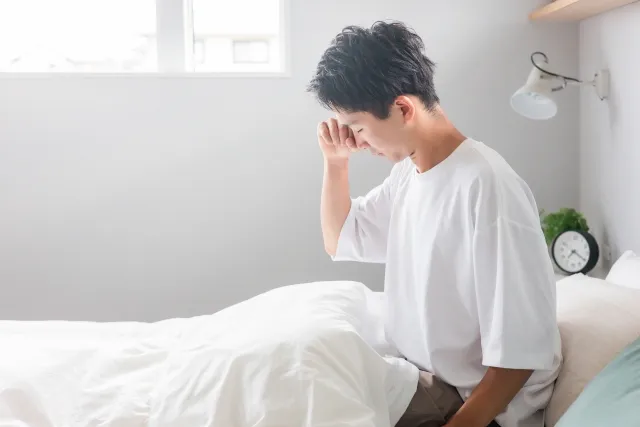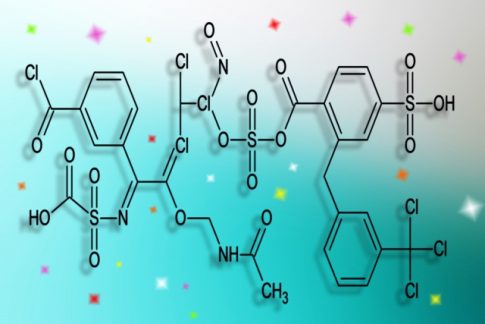Male pattern baldness (AGA) is a form of alopecia experienced by many men and has a wide range of causes, including heredity and hormonal imbalances. Recent studies have shown that sleep cycle disturbances can also affect the progression of AGA. This section details the relationship between AGA and sleep cycles and how to optimize sleep.
1. Relationship between Sleep and AGA
Sleep is essential to the body’s overall health and plays a particularly important role in maintaining hormonal balance. Below are the specific effects of sleep deprivation on AGA.
Hormonal Imbalance
Good sleep helps regulate hormone secretion and maintain balance in the body.In particular, it affects the secretion of growth hormone and testosterone.
Growth hormone: secreted during deep sleep, promotes cell repair and regeneration.Deficiency of growth hormone adversely affects hair growth.
Testosterone: When testosterone levels decrease due to lack of sleep, DHT (dihydrotestosterone) production increases and AGA progresses.
Increased stress hormones
Sleep deprivation increases cortisol (stress hormone) levels.Increased cortisol causes poor circulation and damage to hair follicles, which promotes hair loss.
Increased Inflammation
Poor quality sleep exacerbates the body’s inflammatory response.Chronic inflammation damages hair follicles and accelerates the progression of AGA.
2. How to Optimize Sleep Cycles
Ensuring good sleep can reduce the progression of AGA and maintain healthy hair.Below are some specific ways to optimize your sleep cycle.
Regular Sleeping Habits
Going to bed and getting up at the same time each day helps regulate the body’s internal clock, resulting in good quality sleep.
Consistent hours of sleep: 7 to 9 hours of sleep daily.
Go to bed at the same time: It is important to unify the sleeping hours on weekdays and weekends.
Habit of Relaxation
Relaxing before bed helps you fall asleep more smoothly.
Establish a routine: Establish a relaxing routine for an hour before bed. For example, reading, stretching, meditation, etc.
Avoid using electronic devices: Blue light from smartphones, computers, and other devices can reduce sleep quality. Avoid using electronic devices for an hour before bed.
Environment
A better sleep environment will help you get a deeper sleep.
Darkness: Use blackout curtains to darken the room.
Quiet: To maintain a quiet environment, earplugs or a white noise machine can be helpful.
Temperature: Maintains a comfortable room temperature (approx. 18-20°C).
Healthy Lifestyle
Maintaining overall health improves the quality of sleep.
Exercise: Regular exercise improves sleep quality.However, avoid strenuous exercise just before bed.
Diet: Avoid heavy meals for 2-3 hours before bed and consume light, easily digestible meals.
Caffeine and Alcohol: Avoiding caffeine and alcohol can help you get a deeper sleep.
Stress Management
Reducing stress is important for good sleep.
Meditation and breathing: Daily meditation and deep breathing reduce stress and promote a state of relaxation.
Hobbies and Relaxing Activities: Incorporate relaxing hobbies and activities to decrease stress.
3. Integration of Sleep and AGA Treatment
Improving sleep quality is also important in AGA treatment.Below are some ways to integrate sleep and AGA treatment.
Timing of Oral Medications
Proper timing of AGA medications (such as finasteride and dutasteride) should not affect sleep quality. Typically, these medications are taken in the morning.
Sleep Improvement Supplement
Proper use of supplements that improve sleep quality, such as melatonin and valerian root, can help to improve the sleep environment.
Comprehensive Health Care
Maintaining a healthy lifestyle will also improve the effectiveness of AGA treatment. Eat a balanced diet, exercise regularly, and manage stress.
Summary
Good sleep is an important factor in reducing the progression of AGA.Sleep quality can be improved through the establishment of proper sleep cycles, the introduction of relaxing habits, the development of a sleep environment, the maintenance of a healthy lifestyle, and stress management. This will help balance hormones, improve overall health, and effectively slow the progression of AGA.










